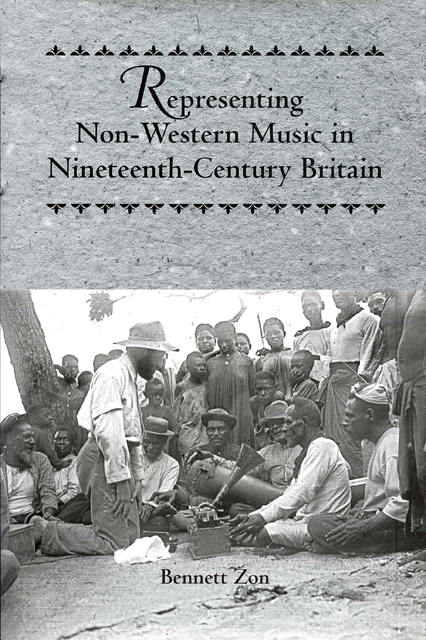Book contents
- Frontmatter
- Dedication
- Contents
- List of Illustrations
- Preface
- Acknowledgments
- Introduction Humanizing the Musical Savage: Orientalism and Racism in the History of British Ethnomusicology
- Part One Early Anthropological Influences
- Part Two Musicology in Transition to Evolution
- Part Three Individualism and the Influence of Evolution: Charles Samuel Myers and the Role of Psychology
- Part Four Retaining Cultural Identity: A. H. Fox Strangways and the Problems of Transcription
- Epilogue The “Ethnomusicology” in Long Nineteenth-Century Representations of Non-Western Music
- Works Cited
- Index
- Eastman Studies in Music
Epilogue - The “Ethnomusicology” in Long Nineteenth-Century Representations of Non-Western Music
Published online by Cambridge University Press: 10 March 2023
- Frontmatter
- Dedication
- Contents
- List of Illustrations
- Preface
- Acknowledgments
- Introduction Humanizing the Musical Savage: Orientalism and Racism in the History of British Ethnomusicology
- Part One Early Anthropological Influences
- Part Two Musicology in Transition to Evolution
- Part Three Individualism and the Influence of Evolution: Charles Samuel Myers and the Role of Psychology
- Part Four Retaining Cultural Identity: A. H. Fox Strangways and the Problems of Transcription
- Epilogue The “Ethnomusicology” in Long Nineteenth-Century Representations of Non-Western Music
- Works Cited
- Index
- Eastman Studies in Music
Summary
As this book attempts to show, the representation of non-Western music in nineteenthcentury Britain was influenced by a wide array of contemporary discourses and ideologies, including theories of noble simplicity, monogenism, polygenism, the comparative method, degenerationism, developmentalism, evolutionism, individualism, and universalism. While among historians of ethnomusicology it is generally recognized that these methods of interpreting non-Western musical cultures informed modes of representation in travel literature and more academic literature of the period, it is not generally acknowledged that the figures discussed in this book—especially Myers and Fox Strangways—were more than mere antecedents in a progression toward modern ethnomusicology. As is strongly suggested in this book, however, Myers and Fox Strangways do appear to conform to a more modern definition of ethnomusicology than is generally considered permissible, especially given the fact that the term “ethnomusicology” derived from Jaap Kunst’s Musicologica: a Study of the Nature of Ethno-musicology, Its Problems, Methods and Representative Personalities (1950).
As this epilogue shows, the use of the term “ethnomusicology” in relation to work carried out before the 1950s is not uniformly agreed upon, despite its putative relevance as a term of description, and many of the figures and ideas explored in this book could, consequently, be said to anticipate later ethnomusicological discourse. The reason for this is, on a certain level, rather simple. Many of the issues that animate the imaginations behind nineteenth-century representations of non-Western music are, arguably, more or less the same as those of the 1950s and later. Indeed, the now heavily “problematizing” discourse of ethnomusicology and the cultural study of music is nothing new. This epilogue is intended to examine more discipline-specific studies that form the basis of this book by exploring these problematizing issues through the history of ethnomusicology and its historical forebears, by taking the reader back through time from today’s largely interdisciplinary study of ethnomusicology and the cultural study of music through the early founding of ethnomusicology and its predecessor in comparative musicology.
- Type
- Chapter
- Information
- Representing Non-Western Music in Nineteenth-Century Britain , pp. 291 - 302Publisher: Boydell & BrewerFirst published in: 2023



